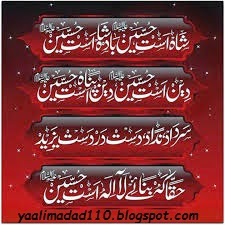بیٹی اللہ کی رحمت
" ایک شخص کے ہاں صرف بیٹیاں تھیں ہر مرتبہ اس کو امید ہوتی کہ اب تو بیٹا پیدا ہوگا مگر ہر بار بیٹی ہی پیدا
ہوتی اس طرح اس کے ہاں یکے بعد دیگرے چھ بیٹیاں ہوگئیں اس کی بیوی کے ہاں پھر ولادت متوقع تھی وہ ڈر رہا تھا کہ کہیں پھر لڑکی پیدا نہ ہو جائے شیطان نے اس کو بہکایا چناںچہ اس نے ارداہ کرلیا کہ اب بھی لڑکی پیدا ہوئی تو وہ اپنی بیوی کو طلاق دے دے گا۔ اس کی کج فہمی پر غور کریں بھلا اس میں بیوی کا کیا قصور۔
 رات کو سویا تو اس نے عجیب وغریب خواب دیکھا اس نے دیکھا کہ قیامت برپا ہو چکی ہے اس کے گناہ بہت زیادہ ہیں جن کے سبب اس پر جہنم واجب ہوچکی ہے۔ لہٰذا فرشتوں نے اس کو پکڑا اور جہنم کی طرف لےگئے پہلے دروازے پر گئے۔ تو دیکھا کہ اس کی ایک بیٹی وہاں کھڑی تھی جس نے اسے جہنم میں جانے سے روک دیا۔ فرشتے اسے لے کر دوسرے دروازے پر چلے گئے وہاں اس کی دوسری بیٹی کھڑی تھی جو اس کے لئے آڑ بن گئی۔ اب وہ تیسرے دروازے پر اسے لے گئے وہاں تیسری لڑکی کھڑی تھی جو رکاو ٹ بن گئی۔ اس طرح فرشتے جس دروازے پر اس کو لے کر جاتے وہاں اس کی ایک بیٹی کھڑی ہوتی جو اس کا دفاع کرتی اور جہنم میں جانے سے روک دیتی۔ غرض یہ کہ فرشتے اسے جہنم کے چھ دروازوں پر لے کر گئے مگر ہر دروازے پر اس کی کوئی نہ کوئی بیٹی رکاوٹ بنتی چلی گئی۔ اب ساتواں دروازہ باقی تھا فرشتے اس کو لے کر اس دروازے کی طرف چل دیئے اس پر گھبراہٹ طاری ہوئی کہ اس دروازے پر میرے لئے رکاوٹ کون بنے گا اسے معلوم ہوگیا کہ جو نیت اس نے کی تھی غلط تھی وہ شیطان کے بہکاوے میں آگیا تھا۔ انتہائی پریشانی اور خوف ودہشت کے عالم میں اس کی آنکھ کھل چکی تھی اور اس نے رب العزت کے حضور اپنے ہاتھوں کو بلند کیا اور دعا کی۔
رات کو سویا تو اس نے عجیب وغریب خواب دیکھا اس نے دیکھا کہ قیامت برپا ہو چکی ہے اس کے گناہ بہت زیادہ ہیں جن کے سبب اس پر جہنم واجب ہوچکی ہے۔ لہٰذا فرشتوں نے اس کو پکڑا اور جہنم کی طرف لےگئے پہلے دروازے پر گئے۔ تو دیکھا کہ اس کی ایک بیٹی وہاں کھڑی تھی جس نے اسے جہنم میں جانے سے روک دیا۔ فرشتے اسے لے کر دوسرے دروازے پر چلے گئے وہاں اس کی دوسری بیٹی کھڑی تھی جو اس کے لئے آڑ بن گئی۔ اب وہ تیسرے دروازے پر اسے لے گئے وہاں تیسری لڑکی کھڑی تھی جو رکاو ٹ بن گئی۔ اس طرح فرشتے جس دروازے پر اس کو لے کر جاتے وہاں اس کی ایک بیٹی کھڑی ہوتی جو اس کا دفاع کرتی اور جہنم میں جانے سے روک دیتی۔ غرض یہ کہ فرشتے اسے جہنم کے چھ دروازوں پر لے کر گئے مگر ہر دروازے پر اس کی کوئی نہ کوئی بیٹی رکاوٹ بنتی چلی گئی۔ اب ساتواں دروازہ باقی تھا فرشتے اس کو لے کر اس دروازے کی طرف چل دیئے اس پر گھبراہٹ طاری ہوئی کہ اس دروازے پر میرے لئے رکاوٹ کون بنے گا اسے معلوم ہوگیا کہ جو نیت اس نے کی تھی غلط تھی وہ شیطان کے بہکاوے میں آگیا تھا۔ انتہائی پریشانی اور خوف ودہشت کے عالم میں اس کی آنکھ کھل چکی تھی اور اس نے رب العزت کے حضور اپنے ہاتھوں کو بلند کیا اور دعا کی۔اللھم ارزقنا السابعۃ
اے اللہ مجھے ساتویں بیٹی عطا فرما۔
اس لئے جن لوگوں کا قضا وقدر پر ایمان ہے انہیں لڑکیوں کی پیدائش پر رنجیدہ خاطر ہونے کی بجائے خوش ہونا چائیے ایمان کی کمزوری کے سبب جن بد عقیدہ لوگوں کا یہ تصور بن چکا ہے کہ لڑکیوں کی پیدائش کا سبب ان کی بیویاں ہیں یہ سرا سر غلط ہے اس میں بیویوں کا یا خود ان کا کوئی عمل دخل نہیں بلکہ میاں بیوی تو صرف ایک ذریعہ ہیں پیدا کرنے والی ہستی تو صرف اللہ وحدہ لاشریک لہ ہے وہی جس کو چاہتا ہے لڑکا دیتا ہے جس کو چاہتا ہے لڑکی دیتا ہے جس کو چاہتا ہے لڑکے اور لڑکیاں ملا کر دیتا ہے اور جس کو چاہتا ہے بانجھ بنا دیتا ہے ایسی صورت میں ہر مسلمان پر واجب ہے اللہ تعالی کی قضا وقدر پر راضی ہو اللہ تعالی نے سورہ شوری میں ارشاد فرمایا ہے:-
لِلَّهِ مُلْكُ السَّمَاوَاتِ وَالْأَرْضِ يَخْلُقُ مَا يَشَاءُ يَهَبُ لِمَنْ يَشَاءُ إِنَاثًا وَيَهَبُ لِمَنْ يَشَاءُ الذُّكُورَ (49) أَوْ يُزَوِّجُهُمْ ذُكْرَانًا وَإِنَاثًا وَيَجْعَلُ مَنْ يَشَاءُ عَقِيمًا إِنَّهُ عَلِيمٌ قَدِيرٌ (50)
(ترجمہ)
آسمانوں کی اور زمین کی سلطنت اللہ تعالی ہی کے لئے ہے وہ جو چاہتا ہے پیدا کرتا ہے جس کو چاہتا ہے بیٹیاں دیتا ہے اور جسے چاہتا ہے بیٹے دیتا ہے یا پھر لڑکے اور لڑکیاں ملا جلا کر دیتا ہے اور جسے چاہتا ہے بانجھ کر دیتا ہے وہ بڑے علم والا اور کامل قدرت والا ہے......!!
Read More »





















